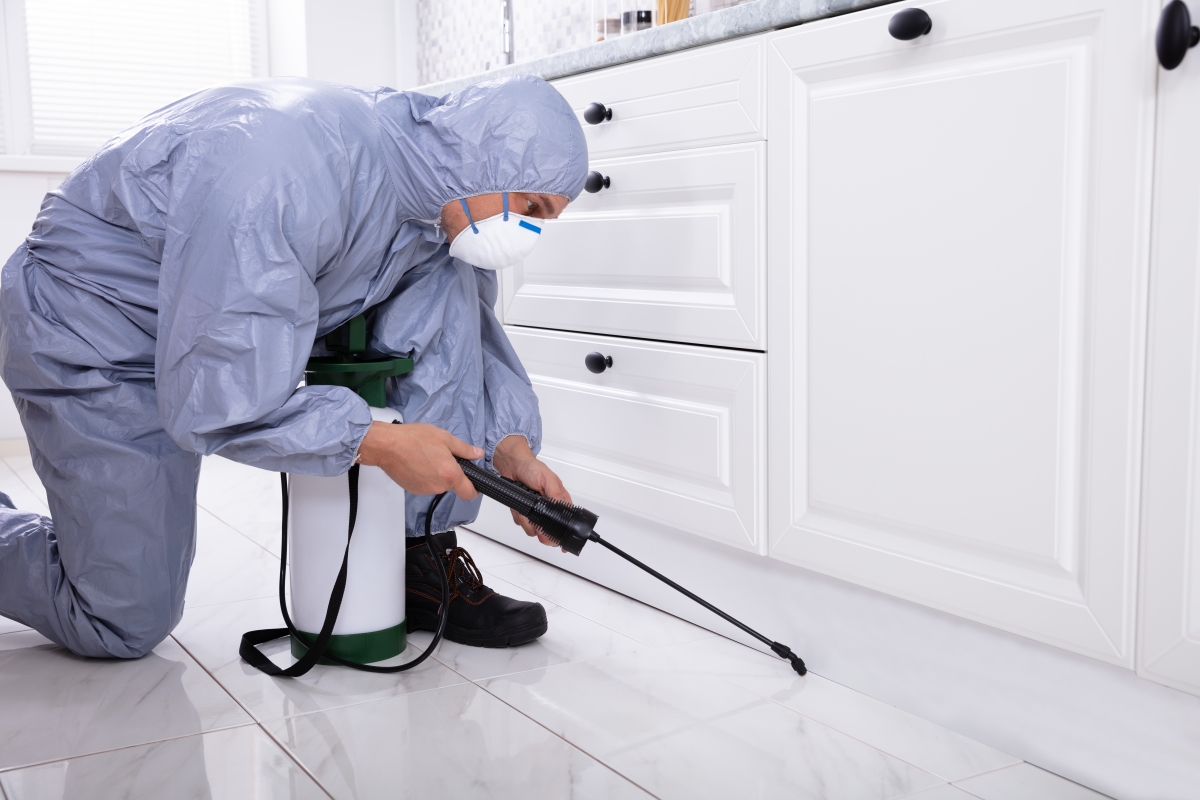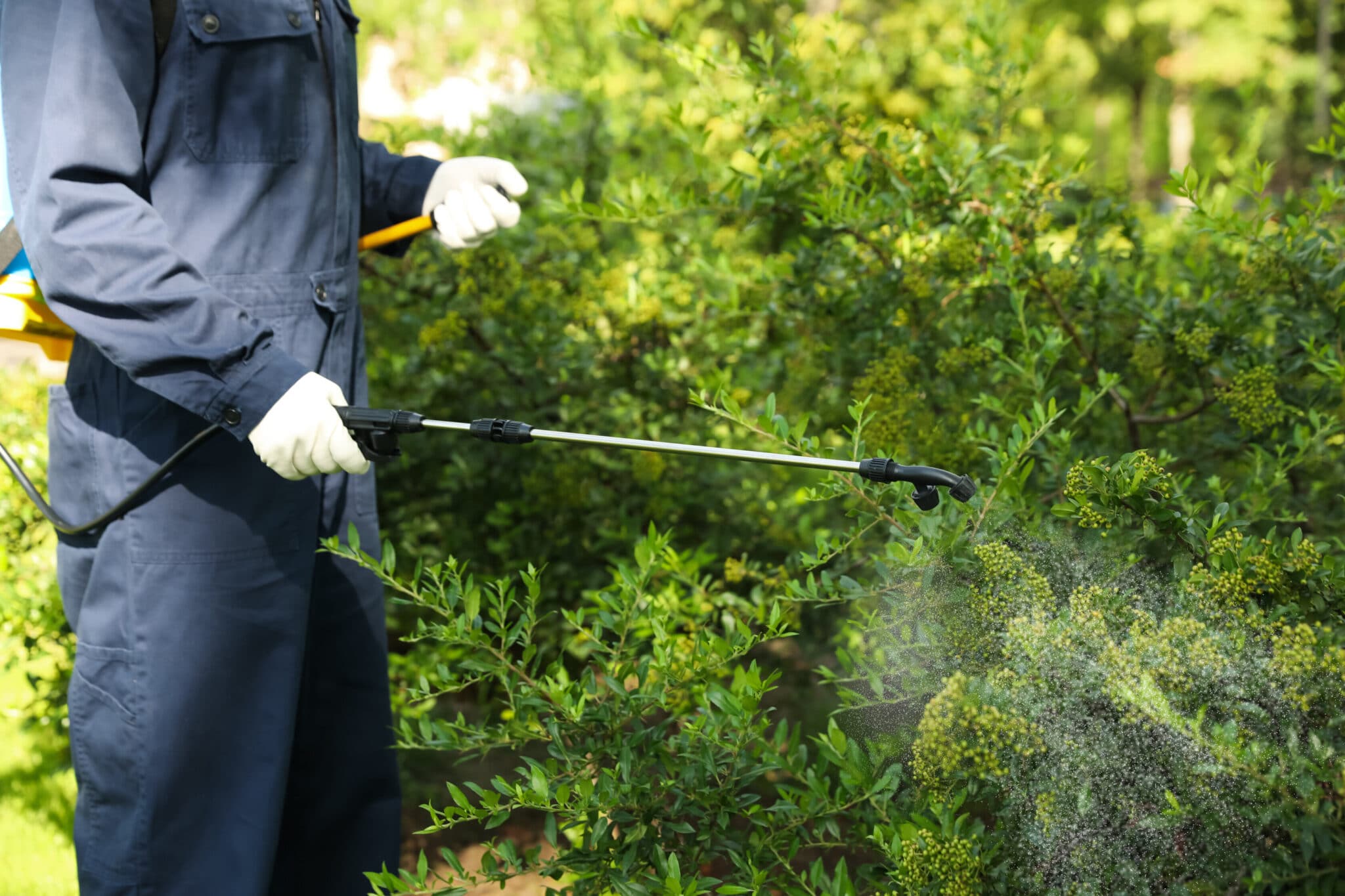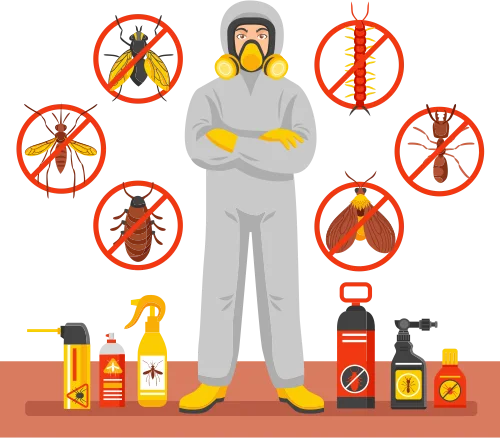Safe and Reliable Pest Control for Lasting Defense
Reliable parasite monitoring needs a diverse technique that balances environmental honesty with the requirement for efficient insect suppression. The nuances of these methods might not be instantly clear, motivating a more detailed examination of the techniques that can lead to sustainable bug control results.
Understanding Bug Control Techniques
Pest control includes a range of approaches focused on handling and eliminating unwanted insects and rodents that can threaten both health and wellness and home. Comprehending these approaches is crucial for efficient pest management.
The key classifications of pest control methods consist of mechanical, biological, and chemical methods. Mechanical techniques include physical obstacles and catches to stop bug entrance and capture undesirable species. Making use of screens on home windows or using sticky catches can substantially decrease bug populations without presenting unsafe compounds - exterminator coquitlam.

Chemical parasite control is commonly the most identified approach, making use of pesticides to get rid of parasites. These chemicals can be reliable yet need to be made use of with caution to stay clear of adverse effects on non-target varieties and the atmosphere.
Advantages of Eco-Friendly Solutions
Just how can environmentally friendly options transform parasite control practices? The fostering of environmentally friendly pest control approaches offers numerous advantages, considerably improving the performance and security of bug administration (exterminator coquitlam). Firstly, these services use natural active ingredients, minimizing the dependence on unsafe chemicals that can pose dangers to human health and the atmosphere. This shift not just shields family pets and households yet likewise reduces the potential for dirt and water contamination.

One more benefit is the positive effect on local biodiversity. Green services are developed to target specific bugs while preserving helpful insects and wildlife, promoting a balanced community. This strategy straightens with the expanding consumer demand for sustainable practices, improving the credibility of insect control providers.
Integrated Parasite Administration Strategies
The implementation of environment-friendly services naturally brings about the fostering of Integrated Pest Management (IPM) techniques, which further enhance bug control effectiveness. IPM is an all natural strategy that incorporates several strategies to manage pest populations while reducing environmental effect. This method highlights using biological, social, mechanical, and chemical controls, making certain a well balanced and lasting approach of bug monitoring.
One fundamental aspect of IPM is the complete assessment of pest task and ecological conditions. By checking bug populaces and determining their life cycles, professionals can carry out targeted treatments that interfere with the insect's environment or lifecycle, minimizing reliance on chemical pesticides. Additionally, social techniques such as plant rotation and habitat adjustment can significantly reduce pest establishment and reproduction.
One more vital part is the use of biological control representatives, such as advantageous pests or bacteria, which can naturally reduce pest populations. When chemical applications are needed, IPM prioritizes the usage of low-risk pesticides and applies them selectively, decreasing exposure to non-target microorganisms and people.
Incorporating IPM techniques not only enhances pest control performance but also promotes a more secure community, straightening with the growing demand for lasting practices in insect administration.
Safe Practices for Homeowners
Recognizing the importance of risk-free methods in pest control can equip home owners to successfully take care of pest issues while securing their wellness and the environment. Implementing precautionary procedures and safe approaches is essential in reducing exposure to damaging chemicals.
Property owners must first evaluate their atmosphere for problems that draw in bugs, such as standing food, clutter, and water waste. Regularly immediate pest control cleaning and securing entrance factors can hinder parasites from attacking the home. Utilizing natural deterrents, such as important oils or diatomaceous earth, can give reliable choices to chemical pesticides.
When chemical therapies are needed, home owners need to decide for items that are specifically classified as risk-free for domestic use. It is vital to comply with application guidelines meticulously to prevent too much exposure. Moreover, utilizing targeted therapies in locations where bugs are recognized, instead of blanket splashing, can considerably reduce chemical use.
Finally, preserving open communication with pest control experts is vital. Home owners must make inquiries regarding the safety of products utilized and demand green choices whenever feasible. By adopting these risk-free methods, homeowners can produce a healthier living setting while efficiently managing insect issues.

Tips for Long-Term Defense
Establishing an insect administration technique that emphasizes long-term protection can substantially enhance the performance of the risk-free techniques previously talked about. To achieve this, house owners need to implement normal inspections of their property, concentrating on hidden areas such as attics, basements, and crawl areas. Early discovery of pest activity is important in avoiding invasions from taking hold.
These practices lower attractants that attract pests right into the home. Securing entrance points, such as splits around doors and windows, can effectively block prospective bug gain access to.
Landscaping should likewise be considered; maintaining plants cut and keeping a range between vegetation and the home lessens hiding areas for bugs. Using natural deterrents, such as crucial oils or diatomaceous planet, can additionally discourage problems without resorting to rough chemicals.
Finally, collaborating with a specialist pest control solution for regular evaluations can supply an added layer of safety. These experts can supply customized suggestions and progressed treatments, ensuring that your home remains shielded against parasites in the long-term.
Conclusion
To conclude, secure and trusted insect control needs a diverse approach that highlights environmentally friendly methods and incorporated bug administration. By implementing natural deterrents, conducting routine examinations, and maintaining appropriate sanitation, homeowner can significantly reduce insect why not look here populations while safeguarding valuable bugs and the environment. Partnership with professional pest control solutions boosts the effectiveness of these methods, guaranteeing tailored services that offer long lasting protection and comfort versus future problems.
Effective parasite monitoring calls for a complex strategy that stabilizes environmental integrity with the demand for effective pest suppression. The adoption of green pest control methods offers countless benefits, dramatically boosting the efficiency and safety of pest administration.The implementation of green remedies naturally leads to the fostering of Integrated Parasite Administration (IPM) methods, which additionally is termite control necessary enhance pest control effectiveness. exterminator coquitlam. By keeping track of insect populations and identifying their life cycles, practitioners can implement targeted interventions that interrupt the insect's habitat or lifecycle, lowering reliance on chemical pesticides.In final thought, reliable and secure bug control needs a multifaceted method that emphasizes eco-friendly techniques and integrated bug management